Also called: Anta do Carrascal
Anta de Agualva
The buzz of traffic is fairly constant. People and dogs come walking by frequently. This is an urban setting, with houses and apartment blocks, shops and businesses all around. You walk along cement pathways, and approach the tomb along wooden boardwalks. There it lies, surrounded by green hedges, nestled in a bed of white stones. The capstone is gone, but the orthostats (upright stones) stand tall and gleaming in the sun. This is a prehistoric site that proudly stands in the middle of a modern town. The passers-by and those who sit on the nearby benches may not always acknowledge it, but the vastness of time is here to ponder for any who choose.
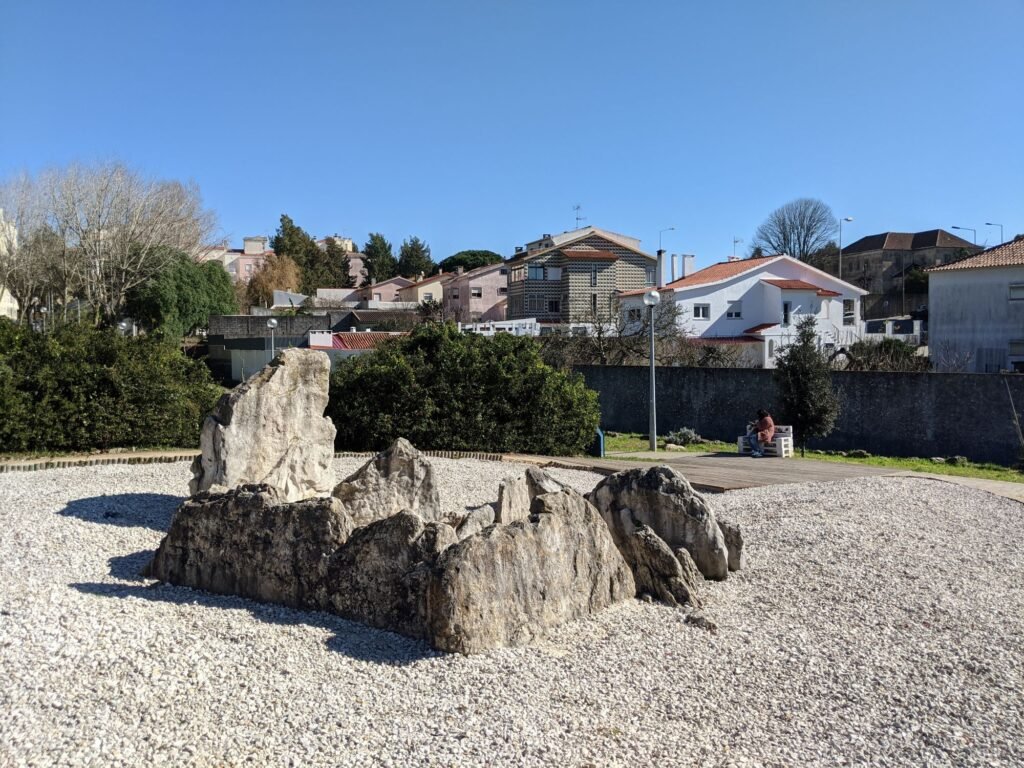
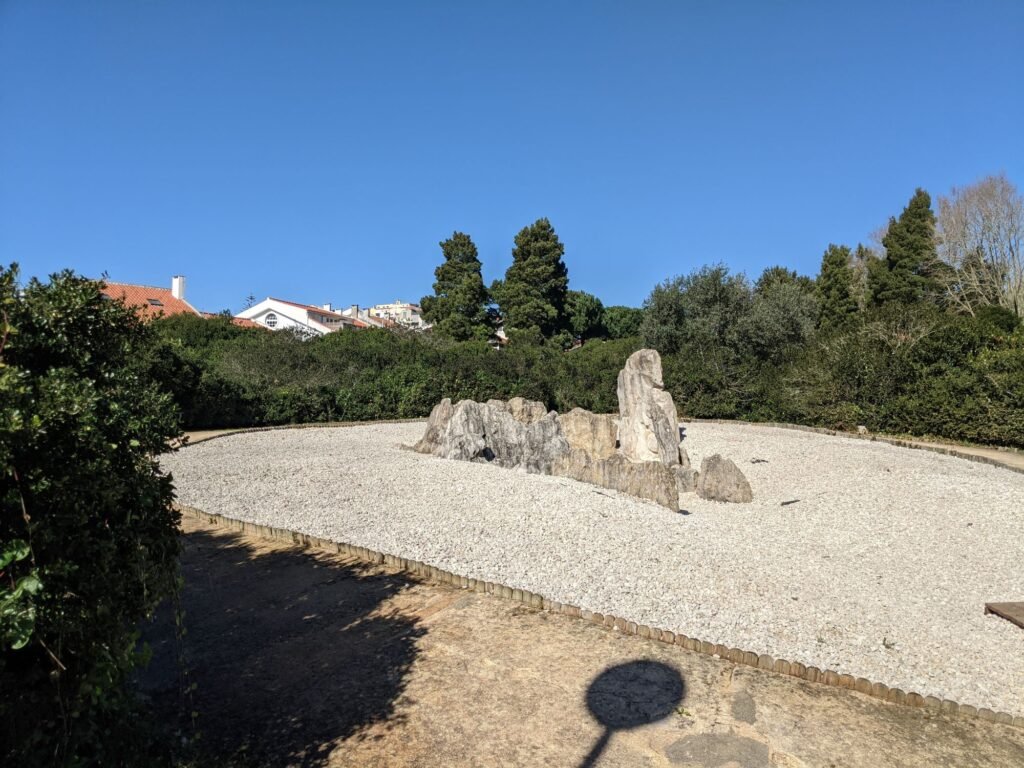
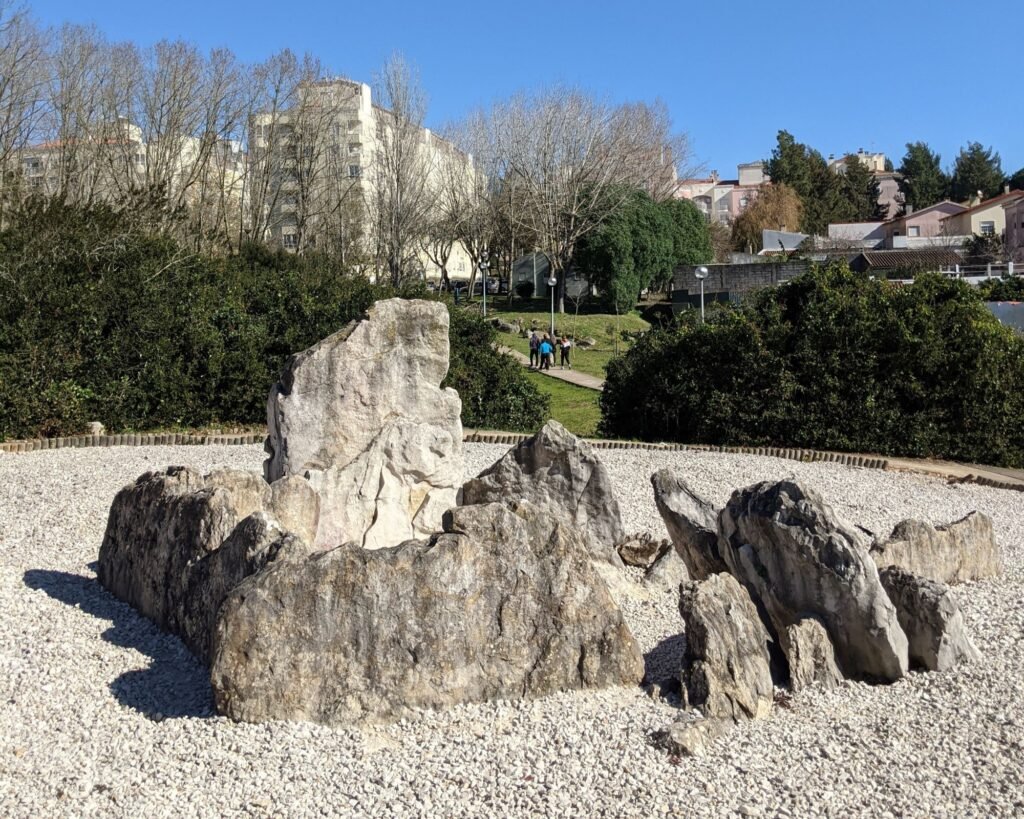
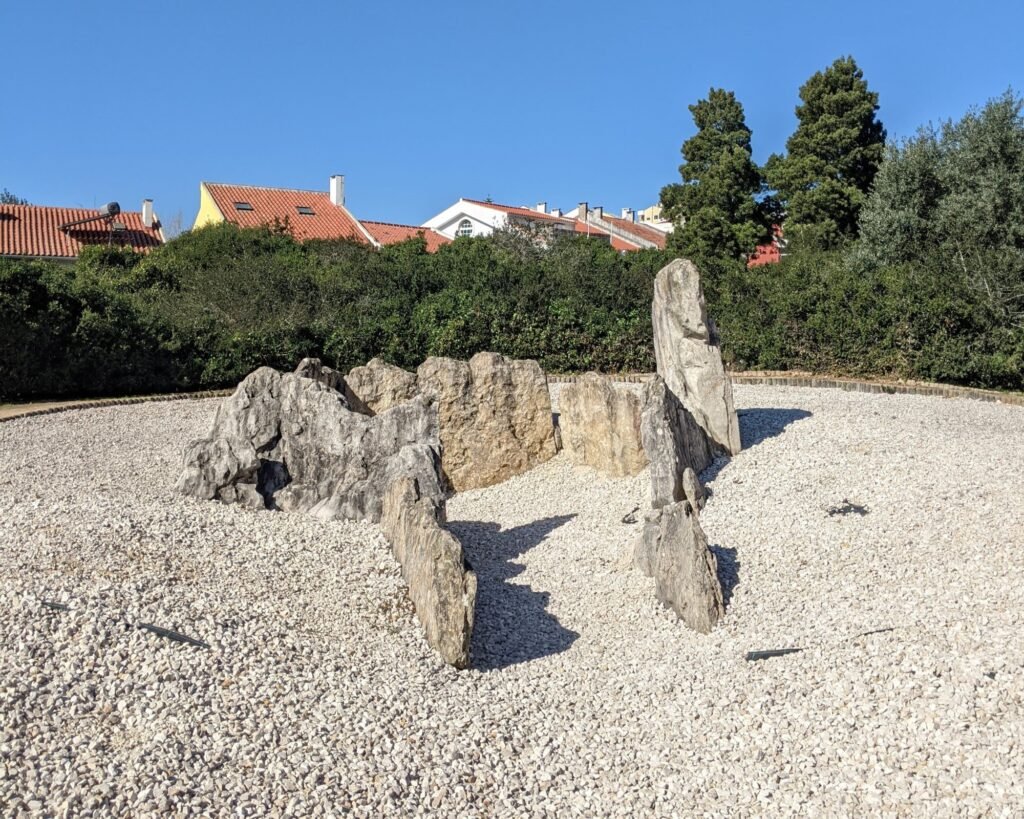
This anta (Portuguese for “dolmen”) is a neo-Chalcolithic tomb, about 5,000 years old. It was first excavated in the 1870s by Carlos Ribeira1 and he described it in detail in his 1880 book. It has a polygonal chamber of 7 upright stones (orthostats, Portuguese = esteios), with the capstone missing. The corridor heads East-SouthEast. Few artefacts were collected: some bones and stone tools, as well as few pottery fragments.
Despite being declared a national monument in 1910, and having a park around it and named after it (“Jardim da Anta”), the anta was neglected for many years and left in a pitiable state. (See images from 2010 here.) In 2017, the Sintra City Council spent money to rehabilitate it and give it the treatment it deserved. The park and the anta are both now a very pleasant place to visit in the middle of an urban area.
Location
Access
The only difficulty of accessing the site is finding parking! The site is in the middle of an urban park and is very easy to get to.
Signage
There are signs leading to the anta all around the area. Perhaps the best way to find it is to plug the street name of Rua Anta de Agualva into your satnav, park along the road named after the tomb, and walk into the park at the foot of the road. Follow the park signs: the anta is to the left.
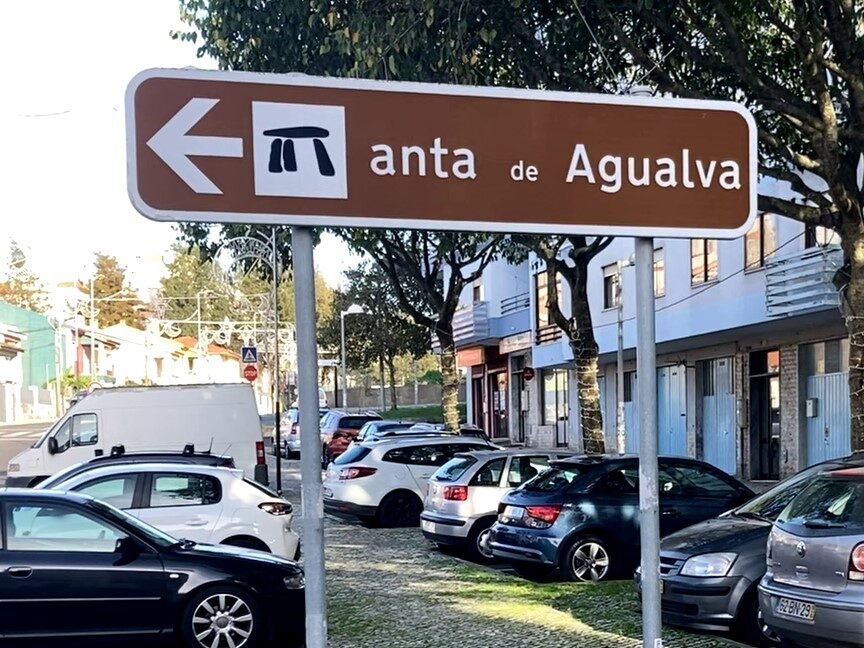
All around the anta, there are explanatory signs in English and Portuguese. These may be legibile, or may have faded or be covered in graffiti.
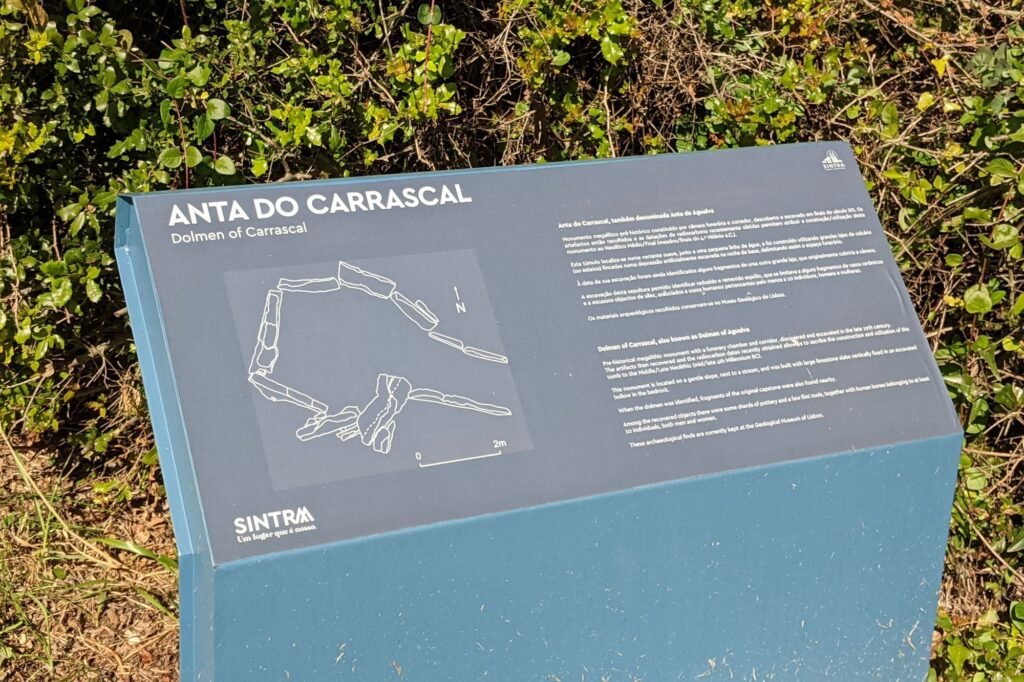
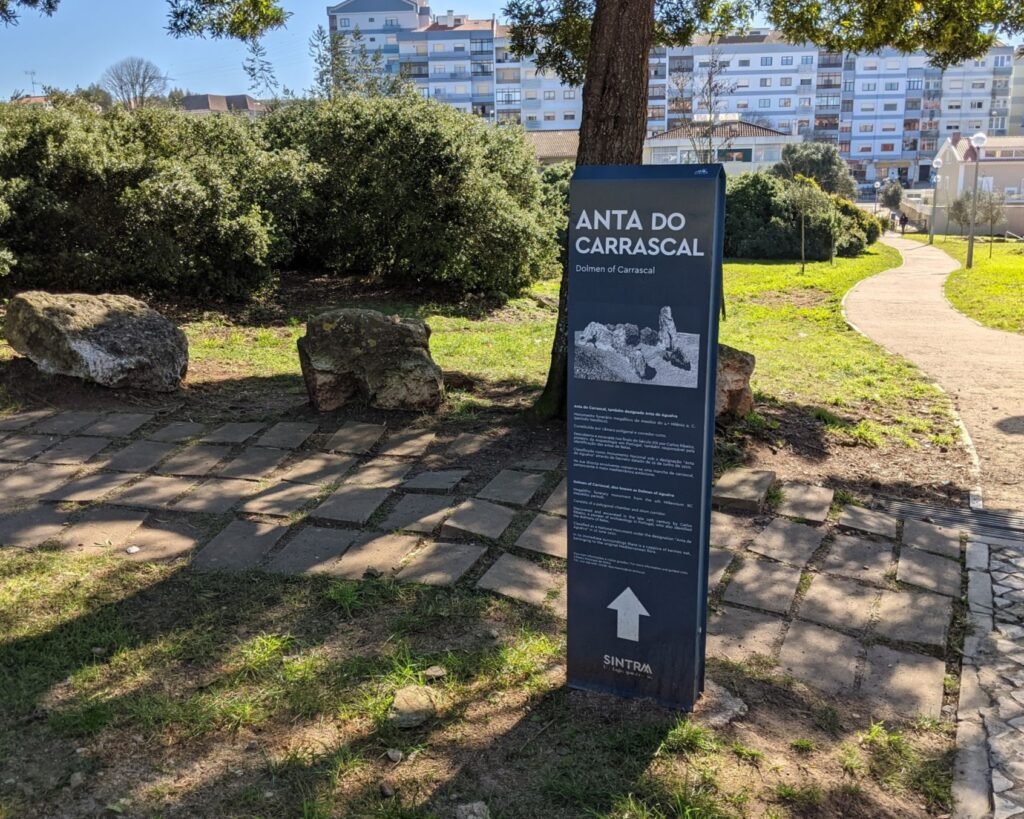
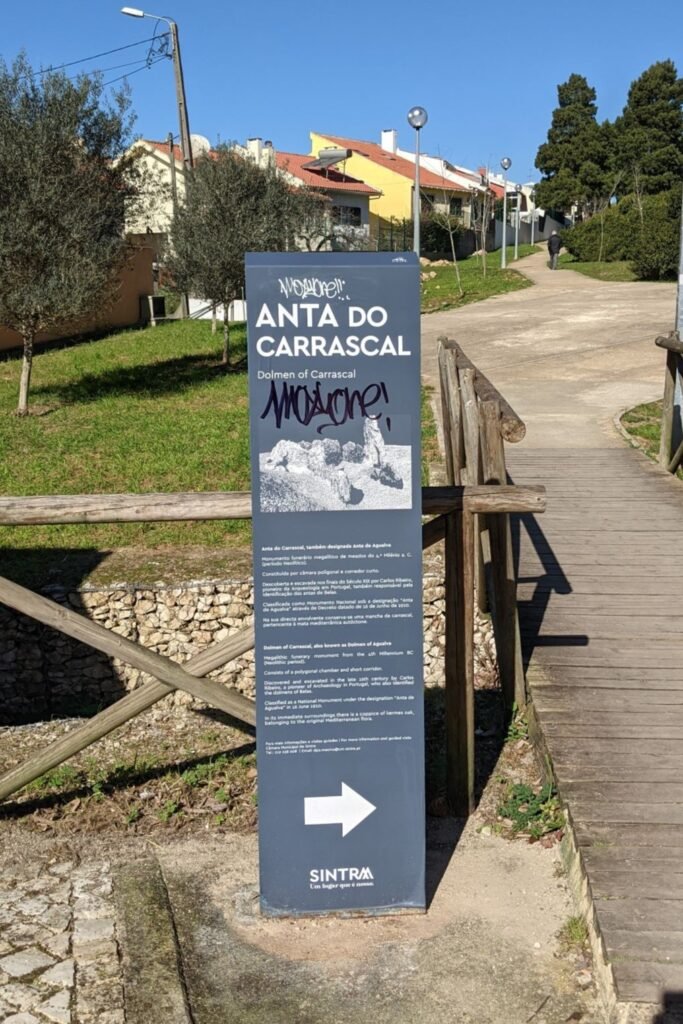
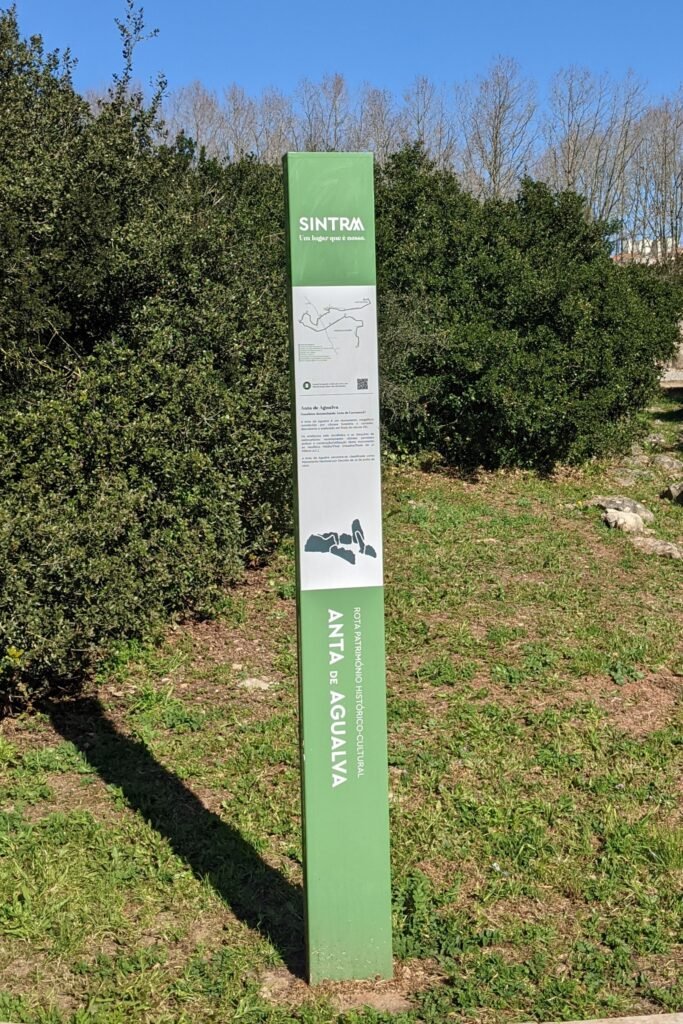
Links
- Wikipedia article (in English)
- Entry (in English) in the English Megalithic Portal
- Description and Map of Route of Historic-Cultural Heritage (in Portuguese) by Sintra Romantica
- Description of the anta and the gardens (in Portuguese) from the Town Hall of Sintra
- Blog post about the rehabilitation of the anta (in Portuguese) by Rouxinal Pomares
- Description (in Portuguese) from the Archeological Portal of the Directorate-General of Cultural Heritage
- Designation (in Portuguese) as National Monument
Nearby
There are several megalithic sites in the Lisbon district, including the nearby Antas of Belas: Estria, Monte Abrãao, and Pedra da Mouros/Senhora da Serra.
Sources
- Boaventura, Rui and João Luís Cardoso. “Carlos Ribeiro (1813-1882) E as Antas de Belas: Um Contributo Para a História Da Ciência Em Portugal No Século XIX.” Estudos Arqueológicos de Oeiras, vol. 21, no. 21, Jan. 2014, pp. 35–80, www.researchgate.net/publication/289532409_Carlos_Ribeiro_1813-1882_e_as_antas_de_Belas_um_contributo_para_a_Historia_da_Ciencia_em_Portugal_no_seculo_XIX_-_Carlos_Ribeiro_1813-1882_and_the_dolmens_of_Belas_a_contribution_for_the_History_of_Sc. ↩︎

Pingback:Necrópole de Carenque - Prehistoric Portugal
Pingback:Anta do Monte Abraão - Prehistoric Portugal
Pingback:Anta da Estria - Prehistoric Portugal
Pingback:Anta da Pedra dos Mouros - Prehistoric Portugal